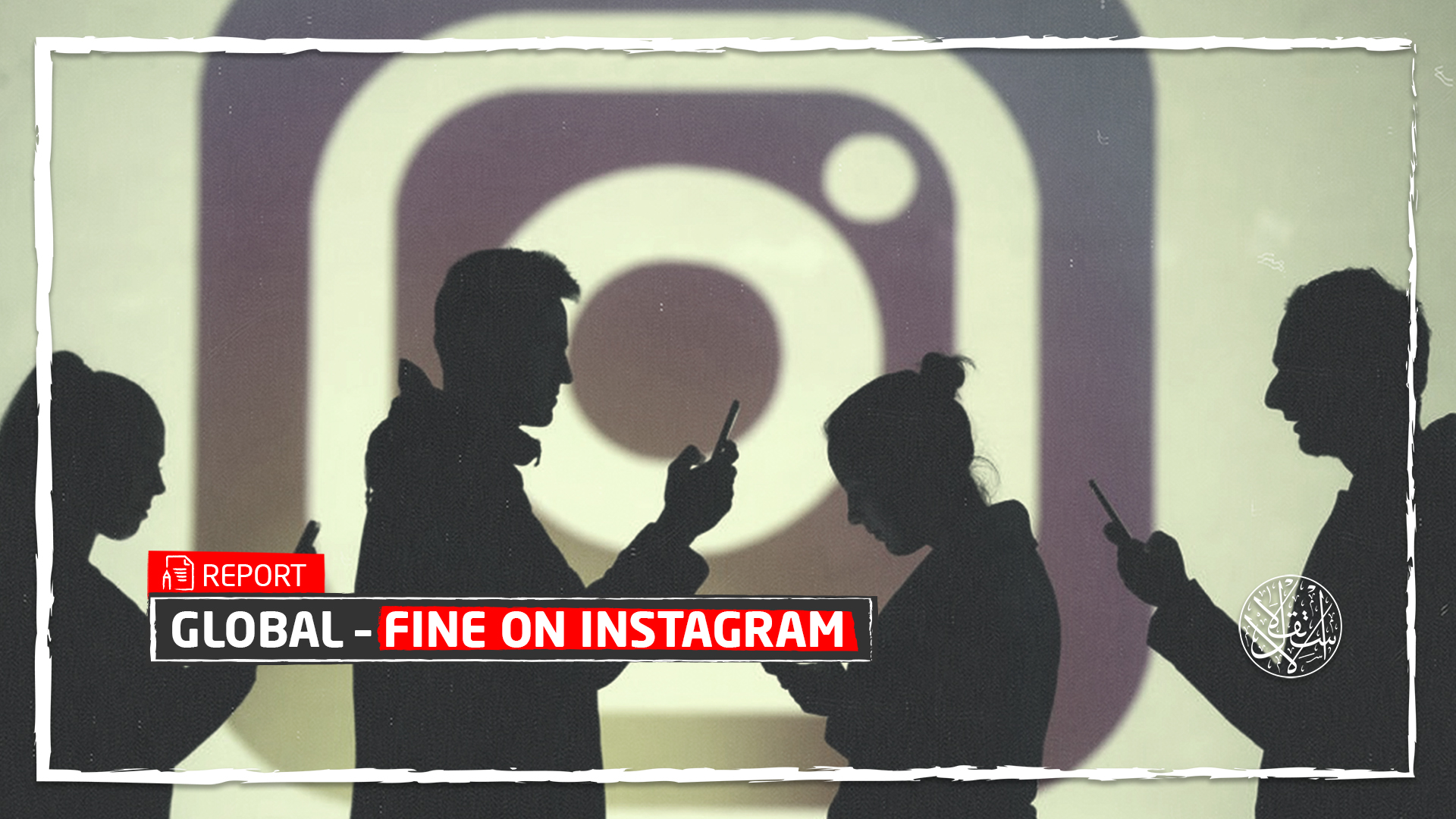Record Fine for Instagram Over Its Failure on Children’s Data Protection

The Irish Data Protection Commission announced on September 5 that it had imposed a record fine on Instagram of 405 million euros on behalf of the European Union for failing to properly protect the data of minors from the Meta Group app, the parent company of Facebook.
A spokesperson for the regulator told AFP: "We adopted our final decision last Friday, and it does contain a fine of 405 million euros." This is the largest fine imposed by this authority since 2018, when the General Data Protection Regulation granted more powers to regulatory bodies in order to protect consumers from the domination of the four internet giants: Facebook, Google, Apple, and Twitter.
Facebook is overseen by the Irish Data Protection Commission on behalf of the European Union, given that the social media giant has its regional headquarters in Ireland.
In late 2020, this regulatory body opened an investigation to determine whether Instagram had put in place the necessary safeguards to protect user data, especially those under the age of 18, as the platform allows anyone aged 13 and over to open an account.

Teenagers at Risk
The regulator expressed concern, especially about the possibility that users under the age of 18 could easily switch their accounts to professional ones. This type of account requires that users' contact details be made public, which means that they are visible to everyone on the social network.
One of the Authority's concerns about Instagram is that the contents of the accounts of minors were open at certain times to all users and not exclusively to subscribers approved by the account holder as it should.
A Meta spokesperson said the group intends to appeal the authority's decision, noting that the investigation relied on settings that changed a year ago.
Instagram was rocked last year after former employee Frances Hogan revealed that company executives were aware that the platform could harm the mental health of young users, particularly teenage girls.
For its part, Meta has consistently denied these allegations, but since then, it has faced a series of interrogations in the US Congress with a torrent of suggestions that the work of these platforms should be regulated.
Meta disclosed in June 2022 that it is implementing a set of measures to enhance the safety of young users on the Instagram platform, to be the latest company to move to address this problem, according to AFP.
Parents will be able to block apps, see what their kids are watching on another device, and see how much time they spend on their headphones.
Activists have long criticized tech giants for failing to protect teens from harmful content, and Instagram has been at the forefront of the targeted platforms due to its popularity with young people.
According to AFP, Meta, who also owns Facebook and WhatsApp, said that parents will be able to limit the time children are allowed to browse Instagram.
However, the researcher in psychology at Bahcesehir University, Ghita Elghiati, told Al-Estiklal that Facebook is implementing various strategies to combat the potential negative impact of its social networks on its users, but they are probably not enough.
The psychological expert suggested removing the number of likes under the posts and indicating that the image is revised, similar to what Norway did. Targeted advertising and sponsored content can also be better controlled to avoid postings promoting plastic surgery or weight loss regimens by minors. For users spending too much time on the app, she emphasized that the company should implement strategies to control the time spent on the app or limit usage times.

Parents Responsible Too
Regarding the role of parents in protecting their children Andrée-Anne Leggari, clinical psychologist and lecturer at the University of Sherbrooke, Canada, indicated that she believes that they should play the role of a guide and be role models for their children.
She said that parents can first pay attention to what their youngsters are seeing on social networks and open up an ongoing conversation about the perceived effects of such use. They may pay attention to signs of low mood, increased anxiety, and changes in eating habits.
She concluded by pointing out that as role models, parents themselves can avoid modifying pictures, changing their bodies, or presenting a perfect body image on social media. Focusing on the regulated use of social media and choosing the times when communication will be voluntarily cut off.
The Wall Street Journal revealed secret internal studies showing that Facebook has been conducting studies for 3 years on the impact of Instagram on millions of young users.
According to the March 2020 internal study, "32 percent of teenage girls say that when they feel low in self-confidence and their bodies, Instagram makes it worse. Comparing perfect body shapes offered on this app can change how teenage girls see themselves and the way they describe themselves." And one in five teenagers confirms that Instagram is hurting their self-confidence.
In a 2019 study, teenage girls accused Instagram of being responsible for their increased rates of anxiety and depression. And 13% of British users of the app and 6% of American users who said they wanted to kill themselves attributed it to the Photos app.

Distorted Reality
Instagram is no longer just an application for sharing photos and short videos with friends but rather a space for showing off, comparing, searching for the likes of others, and attracting followers. The frequent use of it by teenagers as well as adults may cause serious psychological diseases, sometimes leading to suicide.
Most users of Instagram are keen to show only the happy side of their lives and avoid sharing troubles and troubles. Thus, images of beaches, fine restaurants, joy, luxury, and perfect bodies are inferiority vehicles for those who compare themselves and their lives to them.
Leggari explained that she personally treats many young people who face more or less severe difficulties related to their use of social networks and the internet in general. Her scientific research on adolescents who have difficulties due to social networks pushes her to believe that, overall, heavy social media use is associated with an increased risk of experiencing symptoms of anxiety, depression, low self-esteem, or dissatisfaction with body image.
The psychologist added that many teenagers, as well as adults, may have difficulties accepting their external appearance compared to the revised photos displayed on Instagram.
Many people who are role models, such as celebrities, artists, and influencers, use apps and filters to beautify and retouch photos and videos posted on social networks, thus presenting a modified, even unrealistic, image of their bodies.













